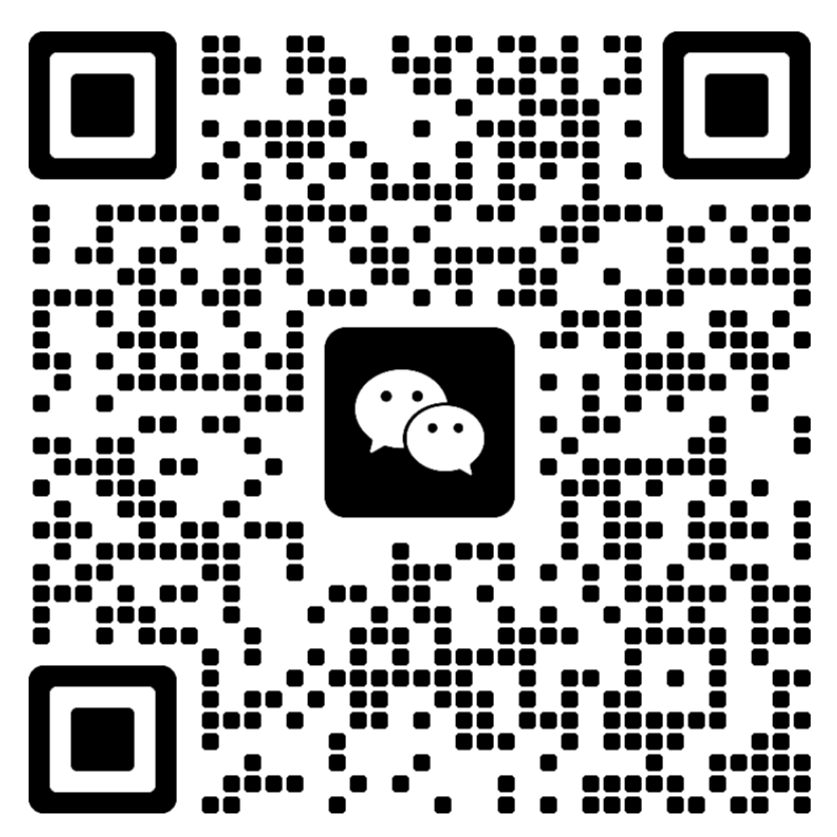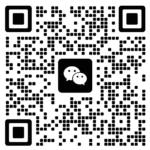Oracle Interview Tips: Questions Answers & OA Interviews
Oracle Interview Prep: Questions & OA Walkthrough
As a giant in the enterprise software and database space, Oracle's engineer hiring process is quite rigorous. The entire recruiting journey usually starts with a careful resume screening to initially shortlist suitable candidates based on your experience and skills, with a special focus on whether your past experience and specific technology stack matches the requirements of the position.perfect matchThe
Applicants who pass the resume screening may next be invited to complete aOnline Testing (OA). These OA's usually contain technical questions and programming challenges that focus on your programming skills and problem solving abilities. This is usually followed by an initial phone call, which will mainly discuss your past experience and technical knowledge.
After this comes one or two rounds of technical phone interviews whichFocus on technical depth, but will also assess your soft skills. Interviews will ask questions about past projects and specific technologies, and will also look at your problem solving and communication skills, and whether youagreeing with Oracle's culture. This stage is critical to getting to the subsequent on-site interviews.
If the phone interview goes well, congratulations on making it to the most challenging onsite interview! Oracle's onsite usually consists of four to five rounds of interviews, each lasting about an hour. Oracle's onsite usually consists of four to five rounds of interviews, each lasting about an hour. The interviews are very comprehensive, covering programming, system design, as well as in-depth discussion of your past projects and experience, aiming to fully examine your technical strength and problem-solving ability.
There will also be at least one round of behavioral interviews that focus on assessing your cultural fit and teamwork skills. Interviewers will often use situational questions to examine how you respond to real-world challenges. The entire onsite is designed to be a comprehensive look at your technical strengths and problem-solving abilities, reflecting Oracle's commitment to technical people.High standards and strict requirementsThe

Job Type
Database Software Engineer
Job responsibilities: Oracle core database technology research and development, including database engine, storage systems, query optimizer, transaction processing, high availability (such as RAC clusters), replication technology. The goal is to create industry-leading database performance, reliability and security.
Interviews examine technical points: database internals, operating system principles, concurrency and parallelism, algorithms and data structures, C/C++ programming, distributed systems fundamentals.
Cloud Infrastructure Software Engineer
Job Responsibilities:Design, develop and operate Oracle Cloud Infrastructure (OCI) services covering compute, storage, networking, authentication, security, monitoring, etc. Build large-scale, highly available, highly resilient, high-performance cloud-native platforms
Interviews examine technical points: distributed systems theory and practice, cloud computing concepts and architecture, system design, network fundamentals, operating systems, programming language skills, data structures and algorithms, cloud security.
Enterprise Application Software Engineer
Responsibilities:Responsible for the development and maintenance of Oracle's vast suite of enterprise applications (e.g., Fusion Cloud applications, NetSuite, etc.), covering a wide range of areas such as ERP, CRM, HCM, Supply Chain, and more. Involves business logic implementation, integration, customization and development of SaaS platform.
Interviews examine technical points: object-oriented design and programming, back-end technologies, database interaction and SQ, API design and development, enterprise-level software architecture, data structures and algorithms.
Java Platform Software Engineer
Job responsibilities: Participate in the development and performance optimization of Java Development Kit (JDK), Java Virtual Machine (JVM), core class libraries, language features and other underlying platforms.
Interviews examine technical points: Java language depth, JVM internals, concurrent programming, C/C++, operating system and hardware interaction, algorithms and data structures.
The Key Areas of Tech Interview
Oracle's interview process is known for its long-term stability, and the corresponding question bank is not updated very often. In terms of programming questions, those involving Backtracking and Two Pointers appear relatively frequently. This means that candidates can focus on preparing to use these techniques to solve classic problems: backtracking is often used in scenarios where all possible paths or combinations need to be explored, while two pointers are great for efficiently working with arrays and strings. The predictability of such question types allows candidates to prepare in a more targeted manner and improve their interview performance by practicing these specific patterns over and over again.
| Features | Percentage |
|---|---|
| Misc | 11.9% |
| Simulation | 3.0% |
| Two Pointers | 9.0% |
| Adv. Data Structure | 6.0% |
| Backtracking | 10.4% |
| Basic Data Structure and Algorithm | 16.4% |
| Binary Search | 7.5% |
| Heap | 10.4% |
| Graph | 3.0% |
| Dynamic Programing | 7.5% |
| Depth-First Search | 7.5% |
| Breadth-First Search | 7.5% |
Programming interview questions at Oracle are typically of medium difficulty. Frequently encountered interview questions include basic data structures and algorithms, dynamic programming, and backtracking. While there is a certain level of rigor and depth to these questions, overall the intensity is slightly lower compared to interviews at companies like Google or Meta.
If you look at the percentage of difficulty of the questions, only 12.71 TP6T were easy questions, the percentage of moderately difficult questions was as high as 731 TP6T, and the remaining 14.31 TP6T were difficult interview questions.
Questions and Difficulty
| Common Interview Questions | Examining technical points | degree of difficulty or ease |
|---|---|---|
| Design Certification Manager | Basic Data Structures and Algorithms | medium difficulty |
| Pairs of songs whose total duration is divisible by 60 | Basic Data Structures and Algorithms | medium difficulty |
| Recorder Rate Limiter | Basic Data Structures and Algorithms | simpler |
| Morphology II | backtracking algorithm | medium difficulty |
| LRU cache | Basic Data Structures and Algorithms | medium difficulty |
| Compute the echo subsequence | dynamic programming | challenging |
| LFU cache | Basic Data Structures and Algorithms | challenging |
| palindrome | sundry | medium difficulty |
| Decode String | backtracking algorithm | medium difficulty |
| Delete duplicate letters | sundry | medium difficulty |
Oracle OA (online assessment)
Oracle's Online Assessment (OA) is an important part of its hiring process, and its primary purpose is to serve as an initial screening tool that efficiently examines a candidate's basic programming skills, mastery of core data structures and algorithms, and ability to think logically about solving programming problems within a specified time frame. Through OA, Oracle wants to quickly identify candidates with the necessary technical skills. Therefore, to prepare for Oracle OA, you need to systematically review and practice common programming questions, especially the aforementioned basic data structures and algorithms, dynamic programming, backtracking and double pointers, which are usually the focus of OA. At the same time, it is highly recommended that you practice under simulated timed conditions to improve the efficiency and accuracy of your code implementation, and to ensure that you can complete the questions with high quality in a limited period of time, which will help you confidently take the first step to pass the Oracle technical interview!
Database Software Engineer
- Technical Examination Points: Core database principles (SQL processing, indexing, transactions, locking), operating system interaction, concurrency and parallelism, C/C++ programming, algorithms and data structures in databases.
- Technical interview questions:
- Explain what the ACID attributes are and how the database guarantees them?
- Describe how B-tree indexing works and discuss why it is widely used in databases.
- How to safely update a record in a database in a concurrent environment (without using the database's own locking mechanism, discussing the underlying implementation ideas)?
- Explain the transaction isolation levels in a database and give examples of problems that can occur at each level (e.g., dirty reads, unrepeatable reads, phantom reads).
- Discuss how the Write-Ahead Logging (WAL - Write-Ahead Logging) mechanism for databases enables crash recovery.
Cloud Infrastructure Software Engineer
- Technical Examination Points: Distributed Systems, High Availability, Scalability, Cloud Computing Architecture, Networking, Storage, Consistency Modeling, System Design, Related Programming Languages.
- Technical interview questions:
- Designing a large-scale object storage service requires consideration of data consistency, availability, and scalability.
- Explain the core ideas of distributed consistency algorithms such as Raft or Paxos.
- Discusses the advantages and disadvantages of microservices architecture, as well as the challenges and solutions that may be encountered when designing services for cloud platforms.
- Assuming you are designing a message queuing service on the cloud, how would you ensure reliable delivery and processing of messages?
- Explain the different strategies for load balancing and how to implement load balancing across availability zones in a cloud environment.
Enterprise Application Software Engineer
- Technical Examination Points: Object Oriented Design, Enterprise Application Architecture, Business Logic Implementation, Database Interaction, API Design, (some) Front-End Technologies, Specific Business Domain Knowledge.
- Technical interview questions:
- Design a simple back-end service for an order management system, including processes such as user order placement and inventory deduction, considering concurrency.
- Explain MVC or other common enterprise application architecture patterns and discuss their advantages and disadvantages.
- How to implement rights management and access control in large enterprise applications?
- Discuss how you ensure code maintainability and testability when developing enterprise applications.
- Assuming you need to integrate two different enterprise systems, what would you consider and what technologies might you use?
Java Platform Software Engineer
- Technical Examination Points: Java language depth, JVM principles, garbage collection, concurrent programming, core class libraries, C/C++ (interacting with the JVM).
- Technical interview questions:
- Explain what the Java Memory Model (JMM) is and how it ensures visibility and ordering of shared variables for multi-threaded access.
- Describe common JVM garbage collection algorithms and discuss their advantages, disadvantages, and scenarios.
- Explain the difference and connection between synchronized keyword and java.util.concurrent.locks.Lock interface.
- Discuss the working mechanism of class loaders and the role of the two-parent delegation model.
- Suppose you were to add a new language feature to Java, how would you design and implement it (open-ended question that looks at language and platform understanding)
Behavior Questions
Classic Behavioral Interview Questions and Answer Ideas
In an interview at Oracle, you may be asked classic behavioral questions designed to understand your ability to learn, collaborate, and improve. For example, "Tell me about an experience where you had to learn a new programming language or a new technology in order to complete a project." When answering, focus on how efficiently you learned this new technology and how you successfully applied it in your project. Mention specific challenges encountered and how they were overcome, and conclude with a successful outcome of the project.
Another FAQ was, "Describe an experience where you had to work closely with others to solve a complex problem." Emphasize the importance of teamwork and communication. Give examples of how you collaborated effectively, how you divided up the work, and the solution strategies the team adopted together. If there was an interpersonal challenge, you can also mention how it was resolved. In addition, the interviewer may ask, "Can you give an example of a software system that you improved the efficiency of?" Discuss the state of the system before the improvement, the specific improvements you proposed or implemented, and the tools and methods used. Emphasize the tangible results of the improvements, such as reduced processing time or cost savings, and mention any metrics used to measure the success of the improvements or feedback received.
Behavioral Interview Teamwork Questions and Answer Ideas
Oracle places a high value on teamwork, so there will be questions in the interview that look at how you perform in a team environment. You may be asked, "Describe an experience where you disagreed with a team member but still had to deliver a project on time." Answer by highlighting your ability to handle conflict, listen actively, and rally the team toward a common goal. Discuss how you facilitated discussions, encouraged open communication, and how you may have solved problems through compromise or creative approaches to keep the project on schedule. If it's about project experience at Oracle, the question might be, "Tell me about a project you successfully completed at Oracle and the role you played in it." For this question, provide details of specific projects you worked on within Oracle, emphasizing your individual contributions and collaboration with the team. Specific technologies or methodologies used can be mentioned to illustrate how your role played a key role in driving the success of the project.
Another question that examines teamwork is, "Can you give an example of how you support a team member who is having a difficult time on a project?" Focus on demonstrating empathy, support, and leadership. Describe how you have helped by providing technical advice, guidance, or reallocating resources in a way that demonstrates your commitment to putting the success of your team above your personal accomplishments.
Behavioral Interview Questions and Answer Ideas Related to Job Specifics
Some behavioral questions will incorporate your technical background and specific job requirements. For example, "Describe a time when you had to quickly learn a new programming language or technology in order to complete a project. How did you ensure your successful mastery?" Highlight your learning strategies, such as utilizing online resources, asking experienced colleagues for advice, and ensuring understanding through small snippets of testable code. Demonstrate a willingness to continually learn, which fits well with Oracle's culture of innovation.
Another technical challenge type question is: "Can you tell us about a challenging bug you encountered in your code and how you solved it?" Focus on describing the problem-solving process, including how the problem was diagnosed and ultimately fixed. If the process involved collaborating with others, emphasize your ability to collaborate and share lessons learned, demonstrating your analytical skills and perseverance. Considering Oracle's emphasis on innovation in software solutions, an interviewer might ask, "Can you discuss a project where you solved a problem through an innovative approach?" Mention how you identified the need for the innovation and the thought process that went into conceptualizing the solution. Describe the impact of this innovation, such as increased efficiency, reduced costs, or increased functionality. Connecting your innovation experience to Oracle's mission to advance technology better demonstrates your fit with the company's goals.
Interview Prep
If you want to successfully pass Oracle's technical interviews, laying a solid foundation in data structures and algorithms is your first task. Oracle's programming interview questions are usually moderately difficult and focus on your understanding and application of basic concepts. In particular, you need to spend time to master core data structures such as arrays, chain lists, trees, graphs, and classical algorithms such as sorting, searching, recursion, and iteration. Moreover, based on past experience, Dynamic Programming, Backtracking, and Two Pointers, which are commonly used and powerful algorithmic patterns, appear more frequently in Oracle interviews. It is highly recommended that you practice the related classic questions to ensure that you can flexibly use these skills to Ensure that you are able to utilize these techniques to solve problems efficiently.
Beyond the programming questions themselves, it's equally crucial to demonstrate the ability to solve real-world engineering problems as a software engineer, especially if you're applying for a more senior role. This means you need to be prepared for a systems design interview. Think about how to design a software system with good scalability, reliability, and performance, and understand common system architecture patterns, database selection, API design, and how to handle concurrency and distribution. In addition, given Oracle's large product line, it's helpful to have some domain knowledge that's relevant to the team for which you're applying, such as an understanding of database principles, cloud computing concepts, and enterprise-class software architecture. These preparations are not just for the interview, but also to enable you to better integrate into your future job and contribute to the software giant that is Oracle.

